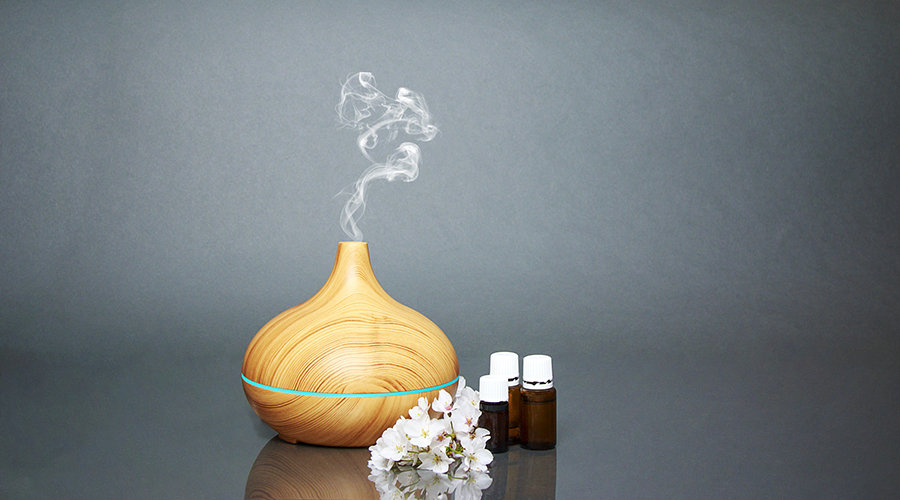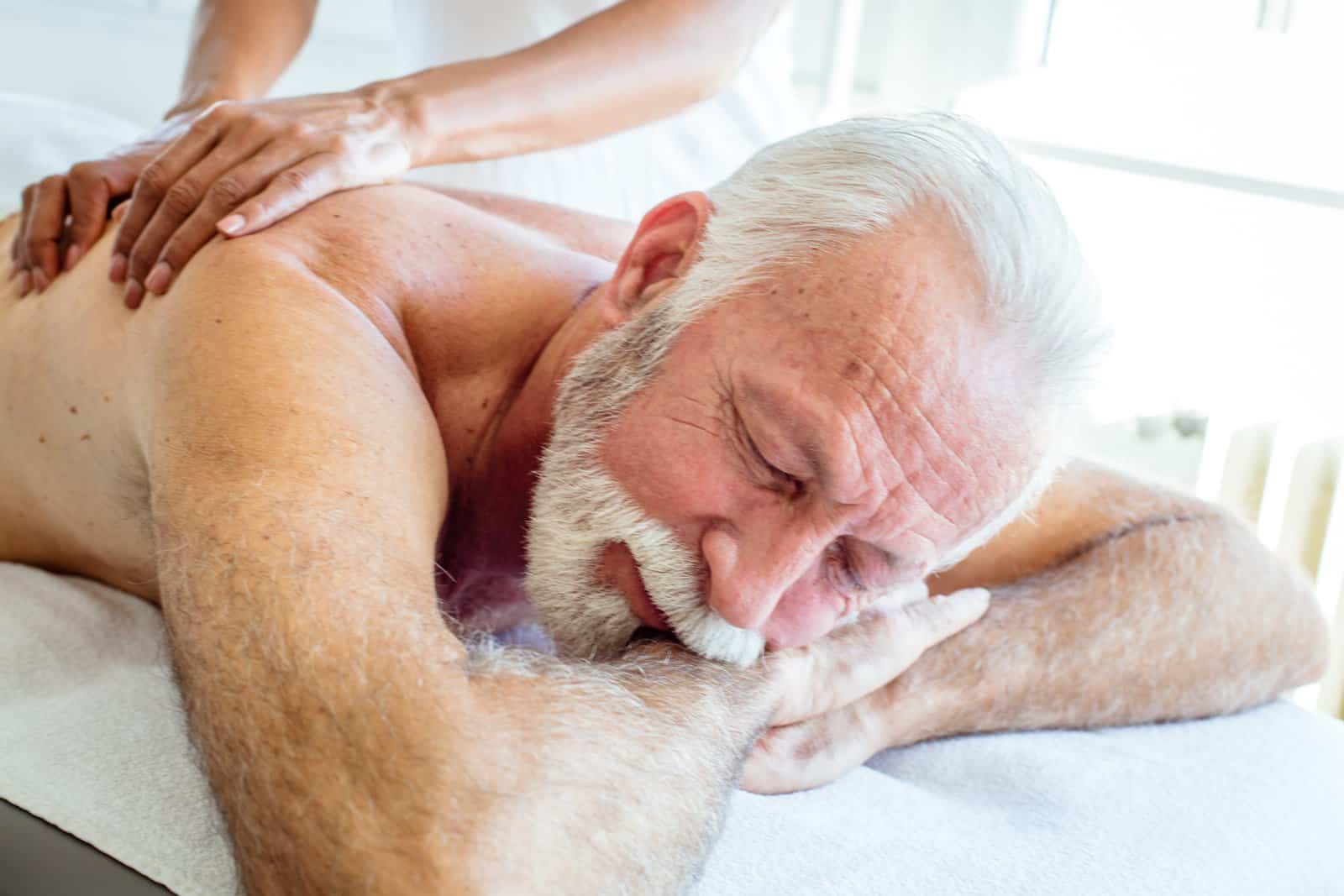
Utilizing Aromatherapy as an Alternative Treatment Modality in Oncology Patients
Is aromatherapy effective in helping to offset the side effects related to chemotherapy treatment or the pain and discomfort associated with invasive treatment or surgery?
Aromatherapy, sometimes referred to as essential oil therapy, is “the art and science of utilizing naturally extracted aromatic essences from plants to balance, harmonize, and promote the health of body, mind and spirit.” 9 Essential oils are derived from plants and possess unique and complex chemical properties.1 Although aromatherapy is prevalent in eastern culture, its use in Western medicine is uncommon.1 Thought of as “alternative medicine”, people often shy away from using aromatherapy in favor of a more researched and recommended practice. Since most medical schools do not educate doctors about essential oils, they are uncomfortable counseling their patients on the benefits and uses of aromatherapy. Although there are countless studies on the efficacy of aromatherapy, its use in hospitals and clinics as an adjunctive therapy for oncology patients is limited. This may be changing, however, as evidence indicates that there have been several cancer centers throughout the country that have begun using clinical aromatherapy as an adjunct therapy to chemotherapy.9
Patient safety is essential when using aromatherapy in a clinical setting. Use of essential oils can be practiced though inhalation, topical, ingestion, or internal. 9Although the inhalation route is the most common because of the simplicity and speed of response, topical use is prevalent as well. 9 It is paramount for healthcare providers to educate their patients on the safety of essential oils since many patients are finding partial information on this subject online or from friends rather than a certified aromatherapist. 9 While this alternative therapy is generally safe and easy to practice, it is vital for patients to talk to health care providers before use, since essential oils can increase or decrease the efficacy of certain medications.9
The emotional health of all patients, but especially cancer patients, can affect the outcome of their treatment and allow patients to face the difficulties of undergoing chemotherapy, radiation, or surgery. Improving the emotional wellbeing of patients can help them feel a sense of control during an otherwise helpless situation. Patients face much uncertainty and fear with the diagnosis of cancer, especially since most people know someone that has either survived or succumbed to cancer. Suddenly, this once elusive diagnosis has become their sole focus. Scouring the Internet for cancer treatments will bring an array of home remedies and “cures”. From drastic diet changes to vitamin infusions, patients are given promises and hope from others’ success stories. This hope diminishes when healthcare providers immediately dismiss their hope upon hearing the patient question these remedies. Instead of educating themselves and patients on helpful adjunctive therapies, many healthcare providers merely focus on the medical aspect. In a qualitative study conducted in Hong Kong, participants who received an aromatherapy massage showed increased feelings of self-acceptance and coping with their diagnosis afterwards.2
A study, conducted by New York University School of Medicine, testing aromatherapy in post-operative patients from a breast biopsy, demonstrated that lavender can increase patient empowerment.4 The patients, who had received lavender oil with their oxygen mask, although their pain scores were not statistically significant, reported better satisfaction with their pain control than the control group.4 In another study, aromatherapy and massage was shown to not only reduce the patient’s stress and depression, but also increased their satisfaction in their quality of life.7 Improving patient satisfaction is a vital part of hospitals in today’s world, since without it; hospitals can risk losing funding and insurance reimbursement. Many hospitals have departments whose sole purpose is the patient experience and some hospitals have even started basing employee compensation on patient satisfaction scores.
In a study by the Hacettepe University Hospital in Turkey, results showed that after using aromatherapy foot massage with breast cancer patients, the patient’s nausea was significantly lower.11 Another study from Turkey, even suggested that nurses should add aromatherapy with massage to their therapeutic interventions.7 Decreasing a patient’s nausea and subsequently lowering the use of anti-emetic drugs could give many patients relief without the need for medication. Furthermore, the greater the reduction in medications a patient needs to take, the less potential there is for drug dependence or side effects.
Many patients report fatigue as a debilitating side effect while undergoing cancer treatment. Fatigue can range from the inability to perform one’s job to being unable to dress oneself. In a study of terminal patients with advanced cancer, a combination of aromatherapy, foot soak, and reflexology improved patients’ fatigue significantly.5 In fact, all 20 participants wished to continue the treatment, since there were no adverse reactions.5 In another qualitative study, participants noted an increase in energy and improvement of sleep after a full body massage with aromatherapy.2
Based on these studies, aromatherapy has the potential to decrease side effects of chemotherapy, radiation, and surgery. Adjunctive therapies, although not a replacement for these, can be an important part of a patient’s journey with cancer. Healthcare providers need to be aware of how to safely recommend and guide their patients through aromatherapy. With some oncology providers already actively utilizing these options, perhaps soon, aromatherapy and other adjunctive therapies will become a normal part of an oncology patient’s plan of care.
References
- Evans, A., Garretson, C., Pedroja, E., Malvar, J., Margol, A., Sposto, R., & Nelson, M. B. (2018). The Use Of Aromatherapy To Reduce Chemotherapy-Induced Nausea In Children With Cancer; A Randomized, Double Blind, Placebo Controlled Trial. Journal of Pediatric Oncology Nursing,35(6), 392-398. doi:10.1177/1043454218782133
- Ho, S. S., Kwong, A. N., Wan, K. W., Ho, R. M., & Chow, K. M. (2017). Experiences of aromatherapy massage among adult female cancer patients: A qualitative study. Journal of Clinical Nursing,26(23-24), 4519-4526. doi:10.1111/jocn.13784
- Izgu, N., Ozdemir, L., & Basal, F. B. (2019). Effect of aromatherapy massage on chemotherapy-induced peripheral neuropathic pain and fatigue in patients receiving oxaliplatin. Cancer Nursing,42(2), 139-147. doi:10.1097/ncc.0000000000000577
- Kim, J. T., Wajda, M., Cuff, G., Serota, D., Schlame, M., Axelrod, D. M., . . . Bekker, A. Y. (2006). Evaluation of Aromatherapy in Treating Postoperative Pain: Pilot Study. Pain Practice,6(4), 273-277. doi:10.1111/j.1533-2500.2006.00095.x
- Kohara, H., Miyauchi, T., Suehiro, Y., Ueoka, H., Takeyama, H., & Morita, T. (2004). Combined Modality Treatment of Aromatherapy, Footsoak, and Reflexology Relieves Fatigue in Patients with Cancer. Journal of Palliative Medicine,7(6), 791-796. doi:10.1089/jpm.2004.7.791
- Lua, P. L., & Zakaria, N. S. (2012). A Brief Review of Current Scientific Evidence Involving Aromatherapy Use for Nausea and Vomiting. The Journal of Alternative and Complementary Medicine,18(6), 534-540. doi:10.1089/acm.2010.0862
- Ovayolu, Ö, Seviğ, Ü, Ovayolu, N., & Sevinç, A. (2014). The effect of aromatherapy and massage administered in different ways to women with breast cancer on their symptoms and quality of life. International Journal of Nursing Practice,20(4), 408-417. doi:10.1111/ijn.12128
- Ozkaraman, A., Dügüm, Ö, Yılmaz, H. Ö, & Yesilbalkan, Ö U. (2018). Aromatherapy: The Effect of Lavender on Anxiety and Sleep Quality in Patients Treated With Chemotherapy. Clinical Journal of Oncology Nursing,22(2), 203-210. doi:10.1188/18.cjon.203-210
- Reis, D., & Jones, T. (2017). Aromatherapy: Using Essential Oils as a Supportive Therapy. Clinical Journal of Oncology Nursing,21(1), 16-19. doi:10.1188/17.cjon.16-19
- Tamaki, K., Fukuyama, A. K., Terukina, S., Kamada, Y., Uehara, K., Arakaki, M., . . . Sasano, H. (2017). Randomized trial of aromatherapy versus conventional care for breast cancer patients during perioperative periods. Breast Cancer Research and Treatment,162(3), 523-531. doi:10.1007/s10549-017-4134-7
- Zorba, P., & Ozdemir, L. (2018). The Preliminary Effects of Massage and Inhalation Aromatherapy on Chemotherapy-Induced Acute Nausea and Vomiting. Cancer Nursing,41(5), 359-366. doi:10.1097/ncc.0000000000000496





